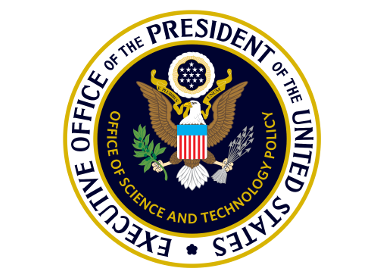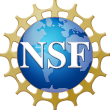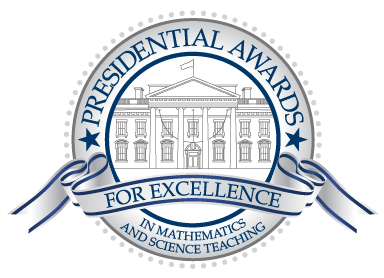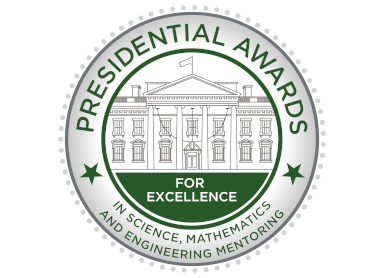Past Awardee Highlights

Neil Plotnick
Neil Plotnick, an educator for over 20 years, has had the joy of co-teaching in virtually every content area at the high school level including Algebra, Geometry, Chemistry, Biology, Earth Science, English, History, and Oceanography. More recently, Neil has been teaching Computer Science, and most recently participated in a national pilot of the Advanced Placement Computer Science Principles course developed by Code.org. He has also served as the District Coordinator for Special Olympics and Adviser to the afterschool Computer Club. Neil is an active member of the Computer Science Teachers Association (CSTA). He has presented several times at the annual conference of the CSTA on how his students use the Linux operating system for programming, networking, and configuring computer systems. Neil has written a blog on computer science teaching for the National Science Foundation’s CS10K community.

Richard Erickson
Richard Erickson is newly retired after having taught for almost 40 years. During his time in the classroom, he taught Chemistry, Physics, and a science-focused experiential learning alternative education program for at-risk students. Richard collaborated with scientists from the Red Cliff Band of Lake Superior Chippewa, the National Park Service, and Northland College to provide his students with authentic scientific experiences and research opportunities. He facilitated independent student research and encouraged his students to participate in science fairs. He has worked with the University of Wisconsin to develop a summer program focused on indigenous arts and sciences, targeted toward Native American students. In addition to his 2017 PAEMST award, Richard was a Minnesota Teacher of the Year Finalist in 1992 and the 2014 Wisconsin High School Teacher of the Year.

Elizabeth Lazaro
Elizabeth Lazaro has been a special education teacher for over a decade. She uses scaffolding and substantial modification strategies in her instruction in order for her students with varying physical and intellectual challenges to access the general education curriculum. In the classroom, Elizabeth employs a variety of strategies in her daily instruction, such as pictures, visuals, manipulatives, hands-on activities, and embeds video/technology presentations to address different learning styles. Her students may not be able to read fluently, or at all, and may not be able to write their names, but they can trace the letters and point/touch the correct answer from a set of two to three choices. She exposes them to real-world situations through trips. In her words, "The Presidential Award is a living testament in celebrating the accomplishments of my students with significant cognitive disabilities. This is a student population that is so passionate about learning given sufficient support and motivation. The award captured a milestone in bringing to the fore how these students are able to access the general curriculum with instructional modifications. Ultimately, the award recognizes my students who do not give up their dreams despite their life situation."

Carmen Olmo La Fontaine
Dr. Carmen Olmo has taught mathematics for almost 40 years. She has taught courses ranging from arithmetic to precalculus and has also taught music classes. Carmen's passion for teaching mathematics has motivated and engaged her students in the learning process through projects, songs, and self-created videos. She has also taught education courses at the university level. Carmen sings in choirs through which she has represented Puerto Rico in competitions and festivals in Europe, Canada, and the US. She has also been a choir director in two schools and has also participated in multiple virtual choirs.
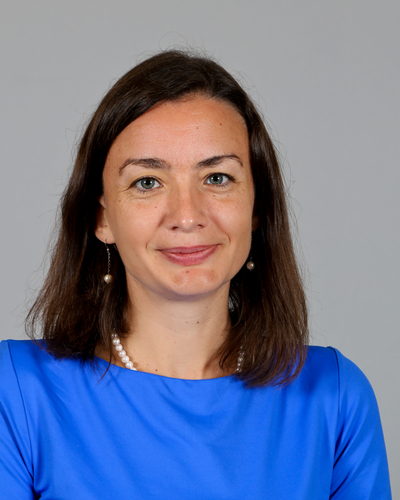
Catherine Walker
Catherine Walker had been teaching for over 15 years in the state of Alaska. She has taught biology, integrated ninth grade science, Project Lead The Way (PLTW) Engineering Essentials, oceanography, and marine biology. Catherine coaches the Dimond National Ocean Science Bowl club, the Dimond Battle of the Books team, and is the Dimond Gay Straight Alliance sponsor. Catherine earned her National Geographic teacher certification in 2019 and has also completed the NatGeo Storytelling for Impact in your Classroom: Photography course in 2020. She completed PLTW training to teach Engineering Essentials in 2019 and took part in the beta testing for the course. Catherine has received the Dimond Center teacher appreciation award as well as the Anchorage Daily News and Geico October 2020 teacher of the month award. She was voted the most supportive coach at the 2019 Alaska Tsunami Bowl.
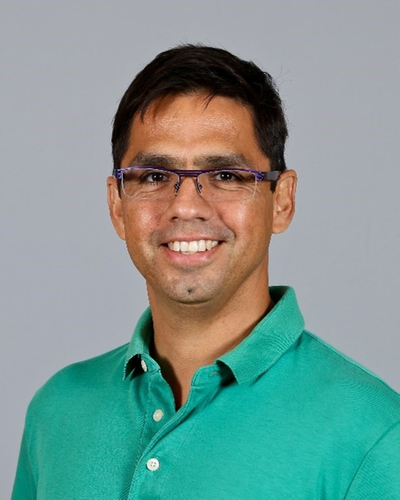
Juan Botella
Throughout his career, Juan Botella has participated in a variety of unique STEM-related opportunities. He spent three months on an Antarctic oceanographic vessel as a PolarTREC teacher in 2011, traveled to Chilean Patagonia with three high school students in 2014, and deployed to the South Pole in 2017 with the Wisconsin IceCube Particle Astrophysics Center. While away from the classroom, Juan keeps a blog to connect students to adventure and discovery. Upon return, he uses these experiences to enrich his classroom lessons. He aims to engage his students with current scientific research to inspire their imaginations.
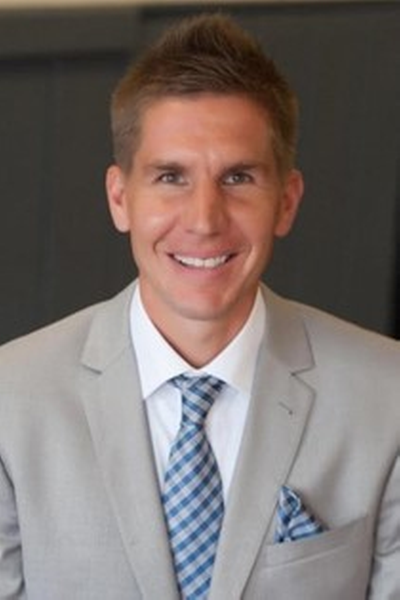
Peter Loken
Peter Loken has been an educator for over 11 years at Garapan Elementary School. Through class discussions, demonstrations, field trips, student projects, and guest speakers, Peter strives to bring a real-life perspective to science for his students. Peter has received several teaching awards and recognition, recently being selected as a Lowell Milken Center Fellow. He participates in the National Oceanic and Atmospheric Administration’s (NOAA) Ocean Exploration project on his home island of Saipan and is a teacher leader for mathematics and science at his school.

Arthur Kimura
Arthur “Art” Kimura has been making an impact on science education for over 50 years. With a focus on hands-on, real-world experiences for students, Art created an off-campus science course in which students worked at the zoo, the aquarium, the humane society, and a hospital. He was selected in 1985 as the Hawaii state representative to the NASA Teacher in Space Project. He directed a summer space camp for 25 years with 9,000 participants, overseeing 14 years of statewide space conferences, directed two annual astronaut recognition days for 20,000 attendees, and provided school programs on Space: the Ultimate Field Trip for over 150,000 students and teachers. Art also introduced scholastic competition robotics in Hawaii including FIRST, Botball, and VEX robotics which grew from an initial two teams to over 700 teams in nine different programs in Hawaii. For the past 25 years, Art has initiated and supported several exchange and visitation programs with schools in Japan including a 20-year relationship with the Japan Super Science Fair. In 2014, Art and his wife, Rene, were recognized as Living Treasures of Hawaii
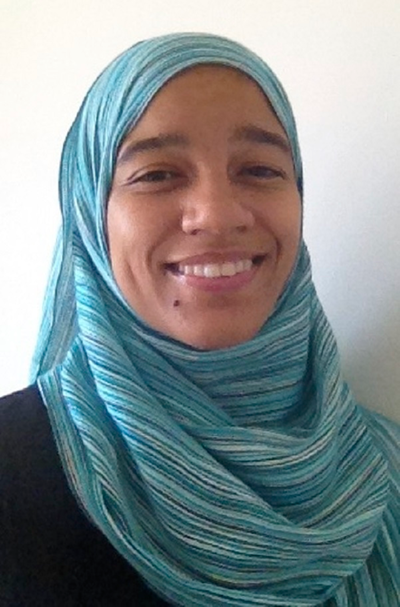
Katrina Abdussalaam
Katrina Abdussalaam is a passionate advocate for mathematics education. As a member of the first DC Teaching Fellows Program cohort, she has been teaching underserved students in District of Columbia public schools for over 20 years. Inspired by her high school algebra teacher, a PAEMST awardee, Katrina discovered an awe of mathematics that she has been able to share as a fourth and fifth grade mathematics teacher. Katrina pioneered the innovative Singapore Math program in the DC area, and tutors struggling mathematics students with an aim to cultivate joyful mathematics, without fear, drudgery, or boredom. Katrina writes cutting-edge mathematics curriculum for Common Core, and she specializes in adapting the New York State Common Core mathematics curriculum for English-language learners, students with disabilities, gifted students, and struggling students.
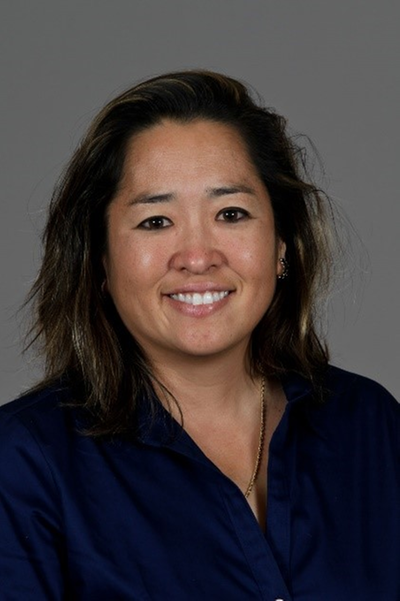
Melanie Ah Soon
Melanie Ah Soon has been making an impact on education for over 20 years. While teaching sixth grade science at Sacred Hearts Academy, Melanie spearheaded the Kaua’i island trip, where students travel off-island to learn about different landforms, such as the Waimea Canyon and Fern Grotto. She also set up service-learning projects, including restoring a native Hawaiian fishpond in Hanalei and eradicating invasive and nonnative plants that threaten the indigenous plants in Koke’e. Melanie’s enthusiasm for science extends beyond the normal school hours. She co-coached Sacred Hearts Academy’s robotics team and has served as a mentor to students for the Hawaii State Science Fair. Additionally, she helped facilitate her school’s Science Symposium for Girls for elementary and middle school students.

Ashley Kearney
Ashley Kearney’s classroom is a bridge connecting the demand for exceptional mathematicians in the development of our nation with the critical underrepresentation of persons of color in STEM. Her pedagogy affirms students’ identity, acknowledges their brilliance, and assigns them roles such as engineers and analysts as they focus on reasoning through and solving real-world problems. Ashley ensures opportunities for experiential learning for teachers and students through interactions with pilots at the Air & Space Museum, attending the annual Congressional Black Caucus Science & Technology Braintrust, and hearing from nifty fifty speakers associated with the USA Science & Engineering Festival. Ashley’s leadership has developed nearly 100 mathematics teachers in Washington, D.C., and throughout the northeast region.

Amanda Fox
Amanda Fox uses computer science to deepen the computational thinking skills of her mathematics students. Her passion for designing, building, and mathematics led her to be the teacher sponsor for the first VEX Robotics team at Prairie Vista Elementary School. The passion she has for mathematics and computer science also gave her a platform to host several afterschool classes focused on coding—both introductory and more advanced, looking at topics such as artificial intelligence. Amanda has developed curriculum for use in elementary classrooms across her state. In the last two years, she has also taken part in the Indiana Computer Science Teachers Association group and holds the role of president for the Northeast hub.

Christopher Bartlo
Christopher has been making an impact on education, both inside and outside of the classroom, for 15 years. As a classroom teacher, Chris developed a comprehensive, four-year Computer Science program for which students receive college credit. The program focuses on student-generated projects and connects students to industry professionals to foster work-based learning opportunities. Recently, Chris has transitioned into a TOSA role for Career and Technical Education at Portland Public schools where he creates professional development and mentors new teachers. In particular, he has been collaborating on a mentorship program to support industry professionals transitioning to the classroom in STEM related fields. Chris works with local, state, and national groups to offer professional development for K-12 teachers who want to bring coding into their classrooms and is involved in planning the Oregon Game Project Challenge.

Diedre Young
Diedre Young has been an influential ambassador for science education in her state and across the country. Diedre designs authentic research in the classroom and is the recipient of several research awards and grants. In 2013, she was one of 12 national finalists for People Magazine’s Teacher of the Year award. She was published in the Research Based Education Journal and participated in a month-long research project at sea on the Woods Hole Oceanographic Institute Ship Atlantis doing physical oceanography. Additionally, all of her students participate in U.S. and international science fairs. To date, her students have been awarded over $200,000 in science fair scholarships.

Elizabeth Henderson
Elizabeth Henderson, an educator for 12 years, has taught science courses at California School for the Deaf, Riverside (CSDR) since 2012. Deaf herself, she is passionate about high quality instruction in American Sign Language/English. She has presented at California Educators of the Deaf and at Elevating and Celebrating Effective Teaching and Teachers. In addition, she is featured in the article “Addressing the Common Core State Standards with the Deaf." Most recently, Elizabeth coauthored “The Vibrating Universe: Astronomy for the Deaf” in the Journal of Science Education and Technology.

Ruth Caraballo Cardona
Ruth Caraballo has been making an impact on education throughout her 30+ year career. Since 2016, Ruth has led the Advanced Placement (AP) Mathematics Program at her school and has spent numerous hours after school tutoring students. Thanks to this additional effort, her students scored the highest in Puerto Rico from 2017 to 2019 in AP Mathematics. In addition to this accomplishment, the College Board of Puerto Rico and Latin America has recognized her with the prestigious Adolfo Fortier award for multiple of the past several years.

Vincent Case
With an education career spanning over 27 years, Vince Case has taught elementary through university public school students, including a year-long sabbatical as an invited ecology professor at the Escuela Superior Politécnica del Litoral in Guayaquil, Ecuador. Originally from Maryland and after graduating from the University of Delaware, he moved to New Mexico in 1994 to teach on the Diné Nation in Thoreau and Shiprock. From 2000 to 2010, Vince taught at the Albuquerque Public Schools’ (APS) School on Wheels Alternative High School where he implemented an experiential and integrated inquiry, field, and place-based curriculum. His students collected and analyzed ecological data on the Rio Grande, in the Bosque, and its acequia systems, presented at various national conferences and festivals, and published several articles in journals and the local media. In 2010, Vince became an environmental education resource teacher with the APS Sandia Mountain Natural History Center. In this role, Vince continues to support and provide an Ecology Field Program for all of the district’s fifth graders and teachers in the mountains. He is a co-founding member of the school district’s Outdoor Learning Team which provides professional learning opportunities for teachers and administrators within the district and encourages schools to use their outdoor campus and community spaces as a resource for student learning while supporting students’ social emotional well-being and academic success. Most recently, Vince and colleagues were awarded a $50,000 grant from the NM Public Education Department to pilot and serve all APS 3rd graders with an academic field experience at the Los Padillas Wildlife Sanctuary in Albuquerque’s historic South Valley that focuses on community, habitats, and human interactions.

Megan McCall
Over her noteworthy career, Megan McCall has engaged with a number of unique opportunities. From her Fulbright Distinguished Teacher experience in New Zealand, to tagging humpback whales and icefish in Antarctica, Megan has been working for over 20 years to ignite the spark for science education. In 2019, Megan was part of the NOAA Office of Ocean Exploration and Research team that captured the first-ever video footage of a giant squid in U.S. waters. While working as the STEM coordinator at Bayside Academy, Megan helped her students increase their problem-solving skills through annual construction competitions and connected her students to colleagues for citizen science projects. Megan currently teaches science courses at Barton Academy for Advanced World Studies and serves as the PAEMST Alumni Representative for the state of Alabama.

Khamphet "Phet" Pease
Khamphet “Phet” Pease has been a teacher for over 15 years. Phet utilizes project-based learning to encourage her students to develop products that address community problems. Outside of the classroom, Phet was a 2013-2018 San Diego State University Noyce Master Teacher Fellow in mathematics. Her talents have not only been recognized by PAEMST; she has received various other honors such as 2015 San Diego County Teacher of the Year, 2019 National Center for Women & Information Technology Educator Award, and the 2021 San Diego County Engineering Council’s Outstanding K-12 Engineering Educator Award.

Wendy Bartlett
Wendy Bartlett has been making an impact on mathematics education for over 25 years. In her classroom, Wendy utilizes technology tools to deepen her students' conceptual understanding of mathematics. She has received the Marcellus Waddill Excellence in Teaching Award from Wake Forest University, the Career Award in Science and Mathematics Teaching from the Burroughs Welcome Fund, the Outstanding Secondary Mathematics Teacher for Winston-Salem/Forsyth County Schools, and has presented professional development sessions at national conferences.

Svea Anderson
Over her extensive career, Svea Anderson has participated in a variety of unique opportunities. As an Albert Einstein Distinguished Educator in 2021-2022, Svea was the inaugural fellow at the Department of Homeland Security, working under their branch, CISA, the Cybersecurity Infrastructure Security Agency. In this position, Svea advised and collaborated on K16 Cybersecurity policies, educational resources, and curriculum. Svea was selected as a Grosvenor Teacher Fellow with National Geographic and Lindbald Expeditions and was selected as a PolarTrec Educator, enabling her to travel to the Arctic to conduct ecological research. Svea taught for fifteen years in Arizona before relocating to the DC area for her Einstein Fellowship. Svea currently teaches middle school science at Kenmore Middle School in Arlington, Virginia.

Bruce Williams
Bruce Williams has been in education for over 20 years. He incorporates LEGO Robotics into his mathematics curriculum and serves as the advisor for the school’s Robotics Club and, outside the classroom, has participated in NASA's Reduced Gravity Education Program, a program which enables educators the opportunity to design, fly, and evaluate a reduced gravity experiment. As a result of this professional development, Bruce is able to bring more STEM activities in the classroom to improve student learning.

Nancy Pfaff
Nancy Pfaff has been making an impact on education throughout her 30-plus year career. In the classroom, Nancy developed a schoolwide Math Night at Horace Mann Elementary, during which her sixth graders lead students and parents in mathematics games and activities. Nancy's work with students and teachers include developing mathematics concepts and build meaning through mathematics discussions. Beyond the classroom, she is involved in mathematics professional development work for the Lake Washington School District. Nancy retired from public education in 2020 but continues to work with new teachers through a private university.

Bryan Silver
Over his extensive career, Bryan Silver, has been able to participate in a variety of unique opportunities. At the time that he received the award, Bryan was participating in classes at the Ames Research Center for NASA, Project Lead The Way, and Unmanned Ariel Vehicle Training/Design. Bryan runs the school’s robotics program that he has led to compete in international championships for seven years. Bryan has also been able to make a significant impact on his community by retrofitting a trailer to be a Mobile STEM Center. This vehicle is used to bring STEM into schools and communities that do not have access to those specific resources and experiences.

Jessica Anderson
Jessica considers herself to be an influential ambassador for science education in her state and country. As a science teacher, specializing in Earth Science, Chemistry, and Biology, Jessica works hard every school year to develop citizen scientists in her classroom. Jessica’s students have the opportunity to connect with students and scientists from around the world. Her talents have not only been recognized by PAEMST as she has received various other honors such as 2016 Montana Teacher of the Year, NEA Teaching Excellence Award, and the 2015 PBS Lead Digital Innovator award. Jessica is certified to teach all grades, K-12.

Jaime Abreu Ramos
Jaime has been making an impact on education, both inside and outside of the classroom, for over 15 years. In the classroom, Jaime implements SMART Board technology to teach his classes. He also engages his students using Robotics. Outside the classroom, Jaime is a mentor for university students working to attain their Ph.D. Jaime also worked with the National Science Foundation to create mathematics content for mathematics teachers. Lastly, Jaime participates in research using electronic portfolios to assess students with and without disabilities.

Lauren Tate
Lauren Tate graduated with a bachelor’s degree in psychology with minors in education and chemistry from Howard University. Using her unique background, Lauren has been able to go above and beyond for her students every year by teaching their parents mathematics and science games to play at home in order to incorporate these subjects into their everyday life. Lauren has used lessons learned from the Alice Fergusen Foundation’s Teacher Institute to provide a “Living Classroom” in all content areas for students.

Jeffrey Remington
Jeff Remington has been an educator in the Palmyra School District for over 30 years. Jeff’s accomplishments are not limited to the classroom. Jeff has received awards and recognition from the White House, the Pennsylvania House of Representatives, and the Embassy of Haiti. Jeff was also a Top 50 Finalist for the Global Teacher Prize. Jeff has helped in implementing visionary STEM programs across the world and takes pride in his impact at the local, state, national, and international level. Most recently, Jeff was selected as one the PAEMST Alumni Representatives for the commonwealth of Pennsylvania.

Chohla Moll
Chohla is a 15+ year educator teaching integrated science as well as Marine Biology and Field Research. Chohla has been able to create unique and authentic opportunities for her students to learn in non-traditional classroom settings. She was able to acquire a classroom set of wetsuits for students to use recreationally as well as for academic purposes. Chohla works with a variety of outside partners to bring opportunities as well. Using her own field research curriculum as a model, Chohla has created a place-based science curriculum framework for educators, which she presented at the Alaska Forum on the Environment in 2017. Chohla also coordinates internships, local conferences, and dual enrollment courses for students to participate in.

Darshan Jain
Darshan is a community and service driven educator with a background in mechanical engineering and mathematics. Darshan’s love of teaching was inspired by his work at the Hispanic Math and Science Initiative. Many of Darshan’s students have graduated from his classes and entered STEM and education-related fields. As an adjunct professor for mathematics education, Darshan is able to mentor and support early career educators. Darshan shares his pedagogy at the state, local, and national levels through conferences across the country with nationally recognized groups such as NCTM.

Barbara Schulz
Barbara Schulz received the PAEMST award in 1983. One year later, Barbara was elected on the NSTA Board of Directors. In 1993, she was elected to the NABT President cycle. In 1994, Barbara left the classroom and began working as a faculty member. Barbara’s distinguished career includes serving as the co-founder of the Science Education Partnership at the Fred Hutchinson Cancer Research Center, founder of the Teacher Advisory Council at the National Academies, and founder of the Planting Science program with the Botanical Society of America. Finally, Barbara worked to start and support the Sisters Science Club in Sisters Oregon.

Florence Falatko
Flo has been an educator at Cromwell Valley Elementary Magnet School for over 15 years. Flo’s mathematics classes are project-driven using programming to develop algebraic patterns. Her classes also use Lego Robotics to model polygons on the coordinate plane. Flo keeps her students engaged using mathematics projects that apply to the real world such as statistical analysis of the World Series and the NCAA Tournaments. Outside of the classroom, Flo is an instructor for the Maryland Council of Economic Education. She received her undergraduate degree in economics from the University of New Hampshire, a M.A.T from Towson University, and a master’s Certificate in technology instruction from Johns Hopkins University.

Jennifer Norford
Jennifer Norford received the PAEMST award in 2008 while teaching at the Ulla F. Muller Elementary School in Charlotte Amalie, VI. Jennifer has nearly 20 years of experience as an elementary school teacher. Parents and colleagues praise her professionalism while acknowledging her relentless effort to maintain rigor and relevance in her teaching. While maintaining a creative and cooperative learning environment in the classroom, Jennifer was also able to pursue her interest in administration. Jennifer is now an Administrator at Lockhart Elementary School and received her Doctorate in Education Leadership and Administration from Walden University.
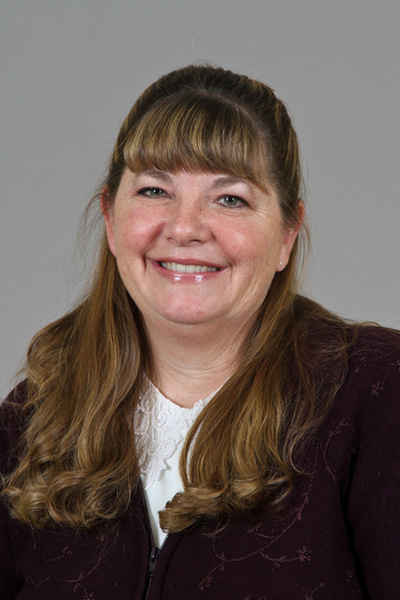
Sandra Trevino
Sandra “Sandee” Trevino taught mathematics at Buena High School in Sierra Vista, Arizona from 1983 to 2012. For 12 of those years, Sandra served as the Mathematics department chair. In 2012, Sandra moved to Washington D.C. to serve as an Albert Einstein Distinguished Educator Fellow while also working with the National Science Foundation. Sandra also has various experiences with NASA ranging from flying on SOFIA (Stratospheric Observatory for Infrared Astronomy) in 2015 to receiving a NASA ENDEAVOR STEM Certificate. From 2015-2018, Sandra served as a STEM Mentoring Coordinator for the ENLIST program at Sierra Vista, AZ.

Christopher Monsour
Chris has taken a global approach to education throughout his over 15 years of teaching. He has participated in three Earth Expedition trips to Trinidad, Namibia, and Argentina to study conservation issues and was selected for the NOAA Teacher at Sea Program. Outside of the teaching realm, Chris has served on the board of trustees for the Earth Literacy Center, the executive board of the National Association of Biology Teachers, and as Academic Dean for the Center for Talented Youth at Johns Hopkins University.

Dymphnia Paulyn San Nicolas-Diaz
Not only has Dym been an educator for 25 years, she is also a commissioned officer in the United States Army Reserve and an Operation Iraqi Freedom War Veteran. Dym teaches high school mathematics as well as mathematics at Guam Community College. Dym is also involved in the Guam Department of Education in multiple committees. This November, we thank Dym for her service both in the classroom and our military.

Yamitza Rosas
Yamitza has been an educator for over 16 years at the Dr. Carlos Gonzalez High School in Aguada, Puerto Rico. She leverages technological resources such as Microsoft Teams in her classroom and has designed her curriculum to be at the forefront of the best global technological practices. Aside from mathematics, Yamitza also works with her students to develop web applications to solve real-world problems, one of which was enacted into law by the Governor to be used in all public schools within Puerto Rico.

Charles Bertsch
Charles has been an educator in Montana for over 30 years. In that time, he has focused on bringing unique and engaging experiences directly to students. His weekly Lego Robotics club featured a NASA electrical engineer as a guest professor. Charles has also worked with Native American high school students struggling with science at a six-week summer session. In that time, he empowered them to express their ideas, build models, and work together to solve problems within the science classroom. Outside the classroom, Charles has served as a member of NSF’s Rural Systemic Initiative Steering Committee.

Valerie Jones
Dr. Valerie Camille Jones has been a Mathematics educator for over 15 years. In that time, she has taught both students and teachers across the world. Dr. Jones has trained over 17,000 teachers, globally, on her instructional methods and has developed video modules for Teach for America to showcase best teaching practices. She has coached her students to a MATHCOUNTS national championship and served as a member of the Southern Association of Colleges and Schools Accreditation Committee.

Amy Harker
After winning the PAEMST award, Amy Harker was able grow in her role as an instructor as well as outside of the classroom. Amy recently served as a participant on the Ohio Governors Executive Workforce Board and as a liaison for the Ohio Department of Education. Amy has also had the opportunity to present her unique, student focused programs, across the country. Amy credits PAEMST for giving her “the courage to reach out beyond the classroom.”

Lali Thundiyil
Lali immigrated to Guam in 1988 and became a U.S. citizen in 1996. Since then, Lali has been teaching science at FB Leon Guerrero for 23 years. Lali’s classroom is not bound by the brick and mortar walls of the school building; he regularly takes his classes outside to collect plant and animal specimens for hands-on learning experiences. Lali has received multiple awards in Guam for his dedication to both teaching and the environment, including the My Favorite Teacher award from the Guam Sylvan Learning Institute.

Kentaro Iwasaki
Kentaro was inspired to teach after experiencing, first-hand, the disparities between public and private school education in California. He taught high school mathematics, ranging from Algebra to AP Calculus for over 15 years. In that time, he served as both a teacher and the department head. As department head, he increased the number of students enrolled in AP Mathematics five-fold, focusing on increasing the participation of underrepresented groups. Kentaro stepped away from the classroom to serve as the Associate Director of Learning and Teaching for a nonprofit for seven years before becoming a doctoral student studying education leadership at Harvard.

Martin Briggs
Martin Briggs has been a teacher for over 40 years. In that time, he has taught a variety of classes ranging from reading and writing to math and science. Martin provides professional development for the Mastering Videos project, which is designed to help teachers cultivate algebra readiness and science skills in real-world scenarios for their students. Martin has also had the opportunity to share his experiences at NCTM conferences on the state, regional, and national levels.

Elizabeth Trummel
Elizabeth “Betty” Trummel has been an example of a lifetime learner her entire career. A 35-year educator, Betty has dedicated her life to science research, communication, and outreach. Since winning the PAEMST award in 1996, Betty has had the opportunity to share science presentations and her teaching experiences around the world. She was also selected as one of 78 women, internationally, to participate in the Homeward Bound expedition to Antarctica in 2016.

Chance Nalley
Chance has taught Mathematics in New York for almost 20 years. In that time, he has taught a variety of mathematics courses ranging from precalculus to statistics. Throughout his teaching career, Chance has worked with at-risk student populations, inspiring them to ask “why” and delve deeper into the lesson. Chance strives to integrate discussion, exploration, technology, and hands-on experiences into student learning. Chance believes that good teaching “requires reflection, support, and continued growth on the part of the educator.”

Dawn O'Connor
After winning the PAEMST award, Dawn began to serve as an advocate for marginalized student communities in science. Dawn transitioned out of the classroom and into the role of a mentor for The New Teacher Project where she was able to support 16 teachers in viewing science education as a social justice issue. Dawn was later asked to become the Director for the California Science Project for the East Bay Science Project. Dawn also gives back to PAEMST by serving as a mentor to applicants and as a state reviewer.

Michael Pope
Michael Pope has dedicated his 21-year career to teaching around the world. For 14 years, Michael has taught mathematics and science at Zama Middle High School in Japan. Michael is no stranger to adventurous learning. He has traveled to Colombia to study STEM teaching across genders, South Africa to study ways to incorporate global education into classrooms and, and most recently, to Svalbard—a Norwegian archipelago in the Arctic Ocean, to study climate change. Most recently, Michael was selected as a Global Teacher Prize Top 50 Finalist for 2020.

Dymphnia "Dym" Paulyn San Nicolas-Diaz
Not only has Dym been an educator for 25 years, she is also a commissioned officer in the United States Army Reserve and an Operation Iraqi Freedom War Veteran. Dym teaches high school mathematics as well as mathematics at Guam Community College. Dym is also involved in the Guam Department of Education in multiple committees. This November, we thank Dym for her service both in the classroom and our military.

Karina Moran
Throughout her 20-year teaching career, Karina has used mathematics to instill a growth mindset in all her students. While she primarily teaches mathematics, Karina also uses her experiences as a non-native English speaker to teach K-12 English for speakers of other languages.

David Upegui
David Upegui is a Latino immigrant who, in his own words, “found his way out of poverty through science.” David has gone above and beyond to accomplish his mission of empowering students by teaching them to explore and question the world providing them with unique experiences such as visits from university professors. David also coaches and mentors teachers within his state.

Joseph John Muna
While Joseph was awarded the PAEMST award for mathematics, he has dedicated his 10-year teaching career to teaching all subjects to fourth and sixth graders. Joseph has also spent the last five years serving as the coordinator for Math Court and offers afterschool programs to prepare students for mathematics competitions. Joseph’s teaches in a 21st century classroom equipped with a SMARTBOARD and iPads for his students. Currently, Joseph is changing his approach to teaching, focusing on project-based learning in order to make the content more relevant and meaningful to his students.

Jennifer Williams
Since receiving the PAEMST award, Jennifer Williams has written numerous magazine articles and a book on science education, served on state and national policy committees, and was a two-time chairperson for the STEM Forum & Expo hosted by NSTA. In addition to helping set academic goals for her school, she also sits on workforce development committees to help local business and industry build STEM pathways for the state of Louisiana.

Patrick Honner
Since winning the PAEMST award in 2013, Patrick Honner has gone above and beyond to help students and teachers understand the many ways to use and teach mathematics. Patrick is an active teacher-leader; coaching teachers, facilitating workshops and teaching a wide-range of mathematic subjects. Patrick has also been able to share his passion for mathematics through speaking opportunities, writing, and art.

Marni Landry
Marni Landry has dedicated her entire career to furthering STEM education. During her 16 years at Paradise Valley High School, Marni provided her students with global and cross-cultural learning experiences by traveling with her Biology club and academic decathlon team to China, Costa Rica, Panama, Ecuador and Mexico. Currently, Marni serves as the manager for Strategic Educational Alliances at Grand Canyon University.

Luke Wilcox
Awardee, Luke Wilcox, has made several contributions to the world of mathematics both before and after winning the PAEMST award. Luke has been involved in the development of several statistics textbooks and is currently writing the Teacher’s edition of The Practice of Statistics, which is the most widely used AP Statistics book in the country. Most recently, Luke was recognized as Michigan’s 2017-2018 Teacher of the Year.

Sharon Hessney
Sharon Hessney has spent her 20+ year career serving others. She has served as a coach to dozens of Math Competition in Modeling teams and has raised over $60,000 for female students to attend Mount Holyoke's SummerMath program. This PAEMST awardee has continuously used mathematics to teach students how to "make informed decisions as productive and successful citizens of our democracy."

Melissa Collins
PAEMST awardee Melissa Collins has taught at John P. Freeman Optional School in the Memphis City Schools since 1999. While holding a variety of roles both within her school and within the teaching profession, her overall goal has been to educate and mentor urban students as they become future scientists and mathematicians. Most recently Melissa fulfilled a vision she had a year ago, holding a white coat ceremony for students entering the STEM club. These 3rd-8th grade students will embark on a year of STEM activities and competitions.

Jay Garvey Shah
As a PAEMST alum and a teacher for over 15 years, Jay Garvey Shah has had an impact on STEM education both at home and abroad. Shortly after receiving the PAEMST award, Jay traveled to Ethiopia where he taught sixth grade mathematics and science. Jay has also received an Outstanding Educator Award from the 100 Black Men organization and the Franklin H. Williams’ Returned Peace Corps Volunteers award for commitment to community service.

K. Renae Pullen
Since receiving the PAEMST award, K. Renae Pullen has taught undergraduate students elementary science methods for Louisiana State University, served on local, state, and national committees, and presented at numerous workshops and conferences. She was awarded a fellowship from the Fund for Teachers to study creativity and STEM in Spain, and was a consulting expert on the National Academies Press (NAP) book on science assessments, "Seeing Students Learn Science: Integrating Assessment and Instruction in the Classroom." K. Renae currently serves as a member of the Board for Science Education National Academies of Sciences and a NSTA/NCTM STEM Ambassador.

Cindy Hasselbring
Cindy Hasselbring used PAEMST’s $10,000 award to become a private pilot. With her pilot’s license in hand, she now serves as the Senior Director for the Aircraft Owners and Pilots Association (AOPA) where she is working to inspire students to enter careers in aviation and aerospace. Partnering with Purdue University, Cindy is currently field-testing a comprehensive 4-year aviation STEM curriculum in 29 high schools that are aligned to rigorous math and science standards. Once finalized, she plans to make the curriculum available to all schools at no charge.

Wayne Fisher
PAEMST helped to launch Wayne’s trajectory as a leader in his large urban school district. He transitioned from high school physics teacher to be the first Elementary Science Specialist in his district, with a charge to nurture and grow the elementary science program. He later received the 2016 Outstanding Administrator Award for this work from the North Carolina Science, Mathematics, and Technology Education (SMT) Center. Along the way, he was also a finalist for the NASA Astronaut Class of 2004, making it to the final cut of 37.

Janice Mak
Just two years after becoming a PAEMST awardee, Janice Mak now serves as the president of the Computer Science Teachers Association Arizona Chapter, and was recently appointed to National Center for Women & Information Technology’s (NCWIT) Executive Council for the K-12 Alliance. In addition, Janice was selected by the Governor to serve on the Arizona State Board of Education in 2016. She is also the co-founder of the Computer Science for Arizona (CSforAZ) task-force that works on convening stakeholders to advocate for K-12 computer science education.

Naveen Cunha
As a PAEMST awardee and Einstein Fellow alum, Naveen Cunha started an award-winning STEM academy in his school district, where he teaches Principles of Applied Engineering as well as Robotics Programming and Design. He continues to support STEM educators nationwide as an evaluator for the Einstein Fellowship.

Crystal McMachen
PAEMST awardee Crystal McMachen now serves as the President-Elect for the South Dakota Council of Teachers of Mathematics. She is also a virtual coach and mentors fellow STEM teachers across South Dakota. Most recently, Crystal was selected to be a member of the South Dakota Mathematics Leadership cohort, sponsored by the South Dakota Department of Education.

Denise Scribner
Denise Scribner has continued to be a motivating force for STEM and recently received the 2017 Excellence in Teaching Agriculture in the Classroom and the 2017 Henry Ford Innovation Teacher of the Year Grand Prize. Her innovative instructional methods and strategies continue to support 21st century learning through experiential learning and problem solving.

Richard Velasco
Richard Velasco has continued to make an impact on STEM education since receiving his Presidential Award. Inside the classroom, Richard taught K-12 mathematics for over 10 years and is currently an assistant professor of mathematics education at the University of Oklahoma where he teaches preservice math teachers. In 2016, Richard received Guam's Middle School Teacher of the Year award and achieved national board certification in 2018. He has since continued to advocate for STEM education as a teacher ambassador through NSF's grant-funded STEM Teacher Ambassador program. Outside of the classroom, Richard currently serves as the PAEMST Alumni Representative for the US Territories and continues to do research in mathematics education for social justice and STEM teacher advocacy. His work has been published in national and international journals including The Educational Forum, Education Sciences, The Electronic Journal for Research in Science and Mathematics Education, The International Journal of Science and Mathematics Education, and The International Journal for STEM Education.
